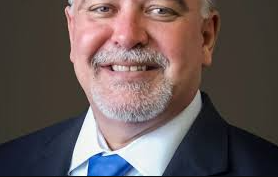
China targets Massachusetts lawmaker Jim McGovern, citing his criticism of its human rights record and involvement in Tibet, Xinjiang, and Hong Kong.
In its latest move against U.S. politicians, China has sanctioned Representative Jim McGovern, a Democratic congressman from Massachusetts, for what it calls his “frequent interference” in China’s internal affairs. The sanctions come after McGovern, a staunch critic of China’s human rights practices, condemned the country’s policies in Tibet, Xinjiang, and Hong Kong.
This sanction, which is largely symbolic, targets McGovern despite the fact that he has no known assets or business dealings in China. As per a statement from China’s Ministry of Foreign Affairs, the sanction includes freezing McGovern’s assets in China, banning any Chinese individuals or organizations from engaging with him, and denying both him and his family entry into China.
In response, McGovern dismissed the sanctions as “absurd” on the social media platform X, describing them as a “badge of honor.” He reiterated his criticisms of China’s human rights record, saying, “If leaders in China don’t like people speaking out against their horrific human rights abuses, perhaps they should address their actions instead.”
As the ranking member of the House Committee on Rules and co-chair of the Tom Lantos Human Rights Commission, McGovern has long been an outspoken critic of China’s record. He is also a member of the Congressional-Executive Commission on China, a body focused on human rights in China.
The sanctions follow a pattern from Beijing, which has previously targeted U.S. lawmakers, officials from the Trump administration, and various companies in response to their criticism of China’s policies. Notably, China sanctioned Rep. Michael McCaul and former Rep. Michael Gallagher due to their support for Taiwan, a self-governed territory that China claims as part of its territory. In 2020, sanctions were also imposed on a number of U.S. senators, including Marco Rubio and Ted Cruz.
McGovern’s recent actions have further heightened tensions between the U.S. and China. Along with McCaul, McGovern introduced legislation in 2023 calling for stronger U.S. backing of Tibet, where human rights violations have drawn widespread condemnation. This bill passed Congress in June and was signed into law by President Joe Biden in July.




















Comments
Hello world!
Pic of the week: Sunset at margate beach
The first day’s journey was through the pink fields
The first day’s journey was through the pink fields
The first day’s journey was through the pink fields